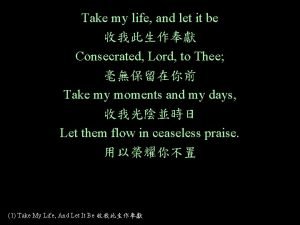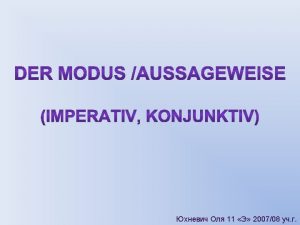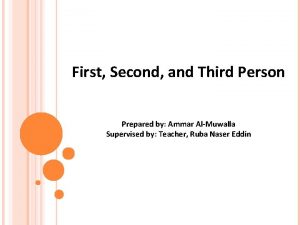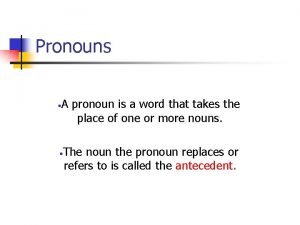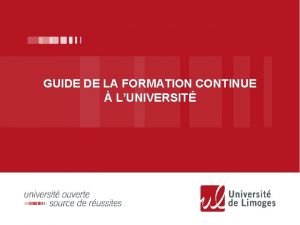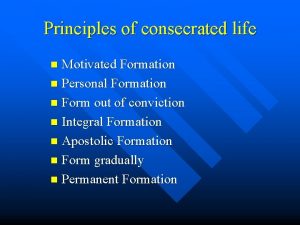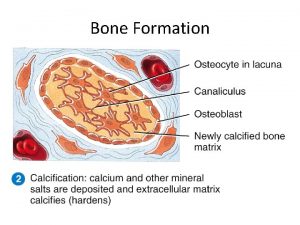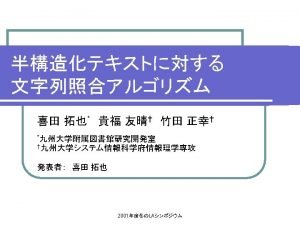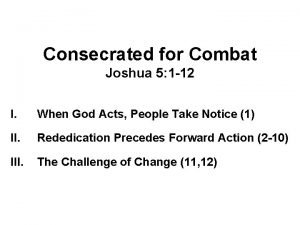THE HUMAN FORMATION OF THE CONSECRATED PERSON Introduction







- Slides: 7

THE HUMAN FORMATION OF THE CONSECRATED PERSON Introduction I. Human Formation II. Importance of Human Formation III. Main goal: Maturity IV. Three important principles V. Knowledge of human person 05/06/2021 1

Premises n Human Formation: it’s what helps the person, who is aware of her vocation, to develop in an integral and harmonic way all her strengths, qualities and possibilities, through the self knowledge and the virtues, under the guide of a person that knows deeply the human being. 05/06/2021 2

From willing an attainable goal, using many different means, we are oriented to get it. WILL – MEANS (Virtues)- GOAL (God) In fact, for You, Lord, our heart is restless until it finds peace in You. (Sant’Augustin) 05/06/2021 3

Importance of Human Formation n n As witnesses in the World “to be salt of the earth and light of the world”. Fundament of integral formation: “first person, then saint”. Fidelity to our own vocation: “to be perfect, as the Father is perfect”. To find plenitude and personal happiness: “just love can make you happy…”. 05/06/2021 4

Main Goal of Human Formation: Maturity n n n Integral, harmonic, hierarchical development of all the elements of the personality, according to what the person has to be and wants to be. To form the moral dimension: form the conscience, practice the moral virtues. Acquire human and social virtues. 05/06/2021 5

Three important principles n n n 05/06/2021 Self – Knowledge (Know yourself). Knowing the vocation (what the consecrated person has to become). Practicing the moral and human virtues. 6

Knowledge of the Person n Kinds of Knowledge u Know what others have said about the person: Scripture, Philosophy, Sociology, Psycology. . . u The knowledge each one has of herself. u The knowledge we have of others. The components of the person: Spirit and matter, soul and body, faculties, psyco-somatic elements. Personality: temperament and character. 05/06/2021 7
